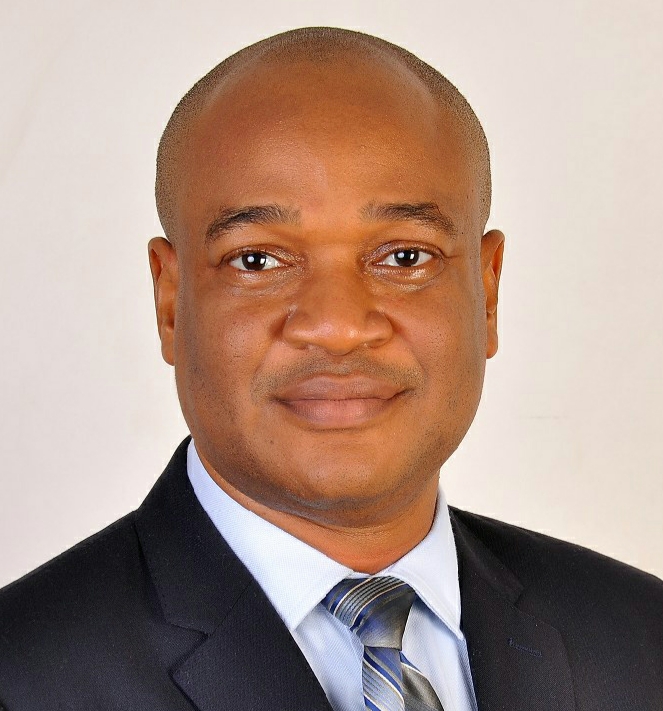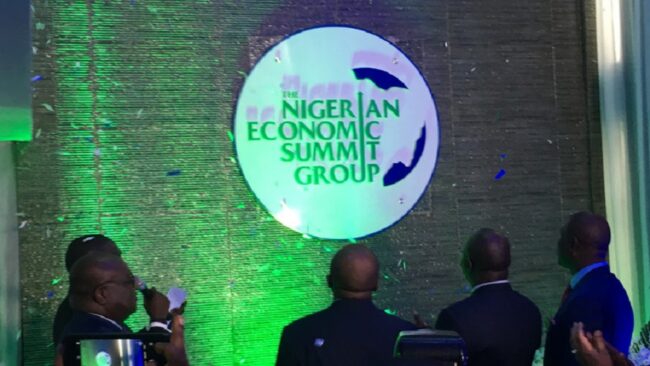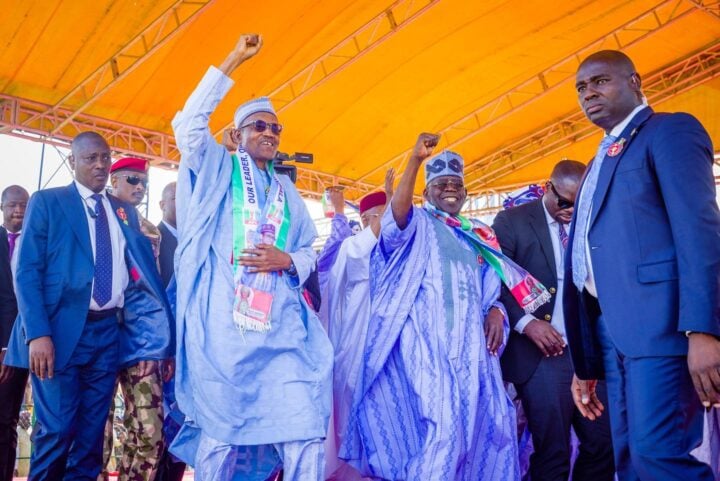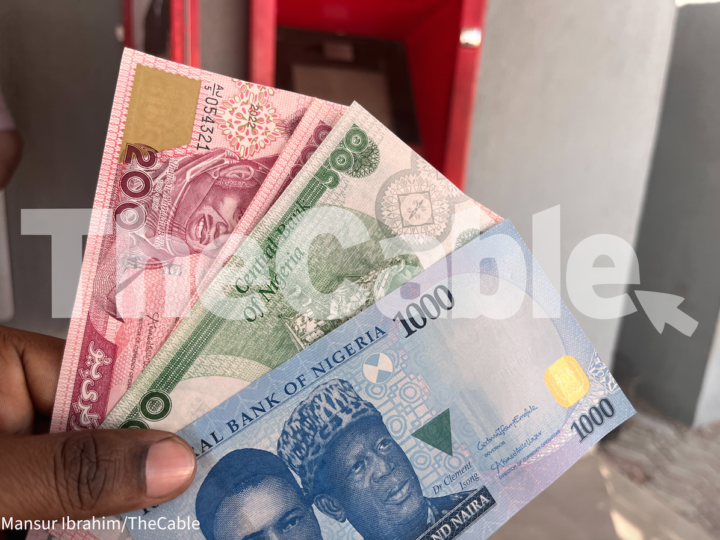On this day, February 18, exactly 30 years ago, government and business leaders converged in Abuja for the first Nigerian Economic Summit. In the words of Chief Ernest Shonekan, former Head of Government and Chairman of the Transitional Council (who also served as the Chairman of the Steering Committee for the Summit), the objectives of the Summit are “to lay down a blueprint for sustainable economic development and to foster private investment to the levels required to fund growth at over 5 percent per year indefinitely into the future”. He stated that real growth in excess of 5 percent is both attainable and necessary to steadily improve the living standards and quality of life for all Nigerians.
At the time, Nigeria’s political transition to democracy was navigating in uncertain territory because the military administration of former President Ibrahim Babangida had postponed the handover twice (from1 October 1990 to 1 October 1992 and later to 27 August 27, 1993). But even more relevant to the discourse was the economic impact of the Structural Adjustment Programme (SAP) which was introduced in 1986 to promote economic efficiency and private sector development as a basis for accelerating long-term economic growth. Unfortunately, despite the increasing liberalization of the economy, the living conditions of Nigerians was significantly declining, and the country seemed stuck in an economic morass.
By1993, the Nigerian economy was characterized by rising inflation, a huge debt burden, decline in agricultural output, heavy dependence on imports, erosion of savings and investments and increasing unemployment. Also, our human resources development was grossly neglected as institutions and programmes failed to keep pace with global competitive and technological requirements. There was also low-capacity utilization in the industrial sector as companies could not compete with cheap imported products. In addition, our deteriorating infrastructure did not meet the demands of a rapidly increasing population. It was clear to discerning observers that Nigeria was on the brink of an economic implosion.
The conveners of the first Nigerian Economic Summit saw this powder-keg and took the bold action of convincing the military authorities that it was time to talk about the issues plaguing the economy. Some of them include Chief Ernest Shonekan, Mr. Pascal Dozie, Mr. Dick Kramer, Alhaji Ahmed Joda, Mr. Faysal El-Khalil, among many others. A grateful nation will always be indebted to all of them for the agility of their imagination and commitment to deliver it. Instructively, President Babangida not only acquiesced but also sat through all the sessions with high-ranking members of his administration.
Advertisement
Some of the key recommendations from that first Summit were the removal of bottlenecks that impede both the inflow of investments and general operating conditions, active disengagement of government from all economic activities that can be better managed by the private sector, elimination of micro-economic distortions primarily through reduction of budget deficit and elimination of extra-budgetary expenditure, actively aiming at the convertibility of the Naira through appropriate economic measures, accelerating the improvement of infrastructure and put in place policies to encourage private participation in that sector, and removal of all other distortions including those related to pricing, which discourage investments. Without a doubt, these recommendations are as urgent and relevant today as they were 30 years ago. The Summit also produced an Economic Action Agenda with far-reaching proposals for transforming Nigeria’s economy.
The successful convening of two subsequent Summits led to the incorporation of the Nigerian Economic Summit Group in 1996 as a non-profit, non-partisan private sector thinktank committed to promoting and championing the reform of the Nigerian economy into a modern, globally competitive, sustainable, inclusive, open economy. Today, NESG’s corporate members, experts and volunteers serve in the national interest, and they are yoked by two guiding philosophies – we pay to serve, and we do not care who takes the credit. Most of the work is done through Policy Commissions, Roundtables and Communities of Practice that cut across different segments of the Nigerian economy. The NESG has also extended its work beyond the executive arm of the Federal Government to the executive arm of the State Governments through the Nigeria Governors Forum as well as the national and state legislatures through the National Assembly Business Roundtable (NASSBER) and State Assemblies Business Roundtable (SABER). It has also established a partnership with the National Judicial Institute to provide capacity building for the judiciary. NESG has also established two centres – the Policy Innovation Centre and Ernest Shonekan Centre for Legislative Reforms and Economic Development. Just a few weeks ago, the NESG recalibrated its engagement strategy by organizing Presidential Dialogues on the Economy with three leading presidential candidates in the forthcoming presidential election.
However, the Annual Nigerian Economic Summit remains the flagship programme which the NESG consistently organizes with the Federal Government of Nigeria. It has been a platform for the ideation and analysis of public policies through a deliberative process built on the principles of a public-private dialogue model. From the repeal of the Exchange Control Act and promulgation of Foreign Exchange Monitoring (Miscellaneous) Decree which eased foreign exchange transactions for Nigerians, repeal of Nigerian Enterprises Promotion Decree and promulgation of the Nigerian Investment Promotion Decree that created a one-stop shop for investors to recommending the cessation of CBN from retail banking activities, all in 1995, the Nigerian Economic Summit has been a force for good. It also championed pension reforms, liberalization of the telecommunications sector, privatization of public enterprises, enabling business environment reforms, etc. Clearly, even though much remains to be done, much has been achieved.
Advertisement
The legacy of that first Nigerian Economic Summit will remain encrusted in the nation’s history. It unleashed a pragmatic dialogue between the public and private sectors, provided a channel to deliver clear feedback on the state of the economy and the investment climate, created a platform for defining our economic priorities and challenged the private sector to be pro-actively involved in Nigeria’s economic development.
On a personal note, I remember watching the live transmission of the first Summit via the Nigeria Television Authority as a first-year undergraduate student. I was in so much awe that I made a promise to myself that I will join these men and women “when I grow up”. I kept that promise in 2001 as I participated in my first Nigerian Economic Summit. Interestingly, I have only missed one Summit from then till date. I have also served in various capacities within the NESG, some of which include the Infrastructure Policy Commission and National Assembly Business Environment Roundtable. I have also worked with various Sub-Committees and Committees to organize the Nigerian Economic Summit since 2010. I would say, not bad at all.
Thirty years on, the Nigerian Economic Summit has broadened the national conversation on our economic progress. It has covered a wide range of critical themes confronting the Nigerian economy. It has proposed several recommendations that would have reset our country’s economic trajectory if they were effectively implemented. It remains focused and committed to the mission of the founding fathers as stated in the report of the first Summit, that the task of national economic development is a partnership between government and the private sector. It is safe to state that it has come to stay, in the national interest.
Nnanna Ude is a member of the Board of the Nigerian Economic Summit Group and CEO of Agon Workman Limited.
Advertisement
Views expressed by contributors are strictly personal and not of TheCable.
Add a comment







